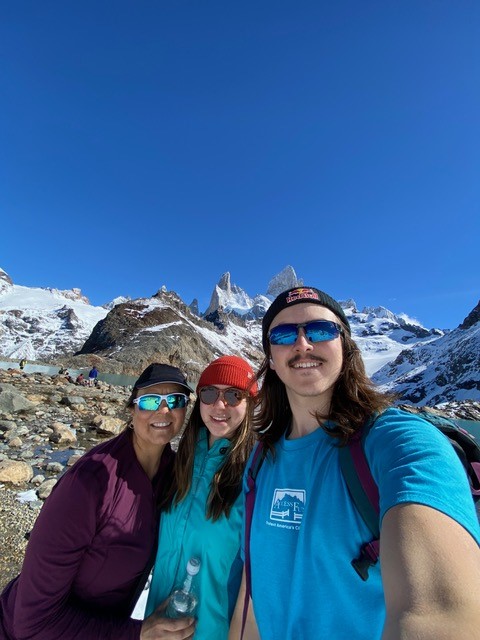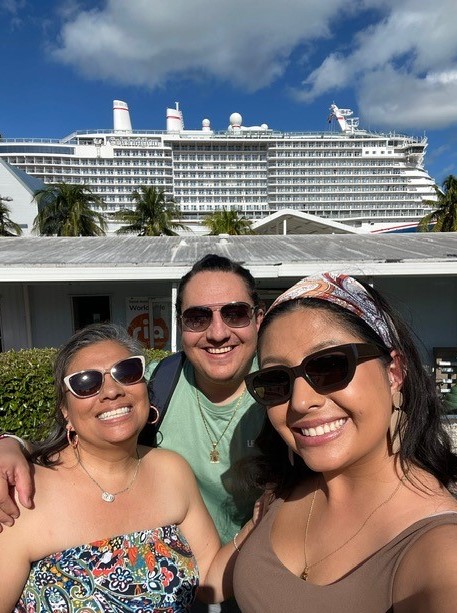Motherhood embodies a strength that is unparalleled. It’s the resilience found in a tired smile after a sleepless night, the determination to provide and protect, and the love that knows no bounds. Motherhood often finds itself at the intersection of selflessness and sacrifice, where a mother’s own needs often take a backseat to those of her family. Unfortunately, this can be detrimental to maternal mental health. In celebration of Maternal Mental Health Awareness Month, we are highlighting some incredible grantee partners that support Denver mothers across diverse communities. These initiatives include but are not limited to:
- Adam’s Purpose: Mental health support specifically tailored to bereaved moms of color, while also educating communities on healthy coping strategies for grief and destigmatizing mental health stigma.
- Colorado Perinatal Mental Health Project: Bilingual perinatal mental health support groups through the Birth Squad Program. This initiative serves as a vital entry point into care for Black and Latinx mothers, providing essential support in trusted community spaces.
- Families Forward Resource Center: A comprehensive in-house mental health program to address inequities among pre- and post-partum Black families in Denver. This program includes Wellness Recovery Action Plan facilitation and on-site counseling with culturally congruent qualified therapists.
- Florence Crittenton Services: Sustainable therapeutic supports for Spanish-speaking and bilingual teen moms and their families.
- La Cocina: A program tailored to Latine birthing individuals, integrating art-based, culturally affirming mental health services. This initiative offers crucial healing support for those recovering from trauma and substance misuse during the perinatal period.
- Para ti Mujer: Recovery-based trauma support and peer mentoring programs for Latina mothers in Denver.
- Saint Joseph Hospital Foundation: Universal screening for pregnant individuals seeking services in emergency and triage departments. This initiative aims to identify and address mental health disorders early, mitigating negative consequences through integrated behavioral health care.
- Thriving Families: Implementing the WiseWellness program, which offers inclusive, two-generation mental health services for underserved pregnant and postpartum adults and teens.
We also want to take this opportunity to celebrate the incredible moms on our team and learn how they prioritize mental wellness amidst the beautiful chaos of motherhood. Through their shared experiences, insights, and vulnerability, they shed light on maternal mental health, offering support and solidarity.
My kids are entering adolescence, and to be honest, I was not prepared for how hard these years are.
“My kids are entering adolescence, and to be honest, I was not prepared for how hard these years are. When my kids were small there were support groups and moms checking in on each other, sharing about our similar experiences. All of a sudden, I need a whole new skill set. With the busyness of

schedules, there is much less time for parents to be casually supporting each other, coupled with adults not really knowing how to talk about adolescent development. But I have found three things to be really important for my mental health during this time:
- I set aside a small amount of money and time for me to schedule classes that help me decompress, either art or exercise. By having scheduled classes, I am able to prioritize holding that time, as opposed to it always being a struggle to carve out time for art and movement from a busy day.
- Being able to help my kids through their hard times actually is a very motivating and gratifying experience. Even when I’m busy and tired, if I put everything away and can really be present and show up for them openly, it makes me feel so fulfilled that I am able to support them.
- I need to be honest about how I’m feeling with my partner and friends. It can sometimes be easier to just keep saying everything’s ‘fine’. When I actually open up, other people open up as well, and we can see that we might be having similar experiences. Sharing that is so important to not feeling alone.”
– Haley Sammen, Lead Evaluation and Learning Partner
I think of the scene from the movie Parenthood about Grandma’s rollercoaster story
“I have two amazing adult children. Each stage has brought—and will continue to bring—its own joy, adventure, and growth, but also its own stresses and challenges. When I think of motherhood and resilience, I think of the scene from the movie Parenthood about Grandma’s rollercoaster story. She uses the roller coaster to symbolize parenting with its ups and downs, joy and excitement, fear and apprehension of the unknown and the unpredictability of it all. My husband and I use this metaphor, especially when things get a little chaotic, and it helps to change our perspective about how we approach the challenge in front of us. I have learned to enjoy and embrace this rollercoaster of a ride called parenting. As I consider what I’ve learned (and continue to learn) about being a mother and the theme of the rollercoaster, these are the tools and approaches that help me to show up in a better way:

- Be flexible.
- Know that challenges and uncertainties are temporary and will be okay in the end… maybe not in the way you imagined, but in a way that is still good.
- Rely on those around you. I am fortunate to have a wonderful husband, family, and friends.
- If something doesn’t work, try something else.
- Enjoy the ride, even when it’s scary or bumpy.
- Embrace the chaos
- Take care of your mental well-being.
I take care of my own mental health by being active through running, biking, and hiking. Also, I enjoy reading, watching movies, cooking, or talking to family and friends, so I can show up healthier and be more present.”
– Jaquie Esquibel, Program Officer
No matter how old my child is, I still consider myself a new mom.

“One key to my well-being as a mother is that no matter how old my child is, I still consider myself a new mom. I am constantly changing as a person, and so is my son. No guidelines can ensure we are taking the right path, so we get to explore every moment in the moment. I try not to take myself too seriously, be open to learning many new things, and invest time in myself for exercise and creativity wherever possible.”
– Kindle Morell, Director of Communications
I take care of my own mental health by practicing JOMO.

“My children have taught me volumes about myself and how we learn to be resilient together. We have learned about balance in life and how quickly it can get away from you. Attempting to set an authentic example, letting your kids see who you really are and being supportive and realistic with each other when the world is not cooperating with our planned agenda, has reinforced our bond. Most of all I have learned to instill a sense of ‘you are so loved’, with any luck this will help us come back to center when life is hard. I take care of my own mental health by practicing JOMO—giving myself a break and experiencing the Joy of Missing Out. Feeling that ‘deep rest’ sets me up to get back out there in the world.”
– Tish Gonzales, Grants and Operations Manager
Moms, your strength and resilience inspire us daily! Keep pushing forward and remember to prioritize your mental wellness. Together, we’re forging a path towards brighter days and stronger maternal mental health.